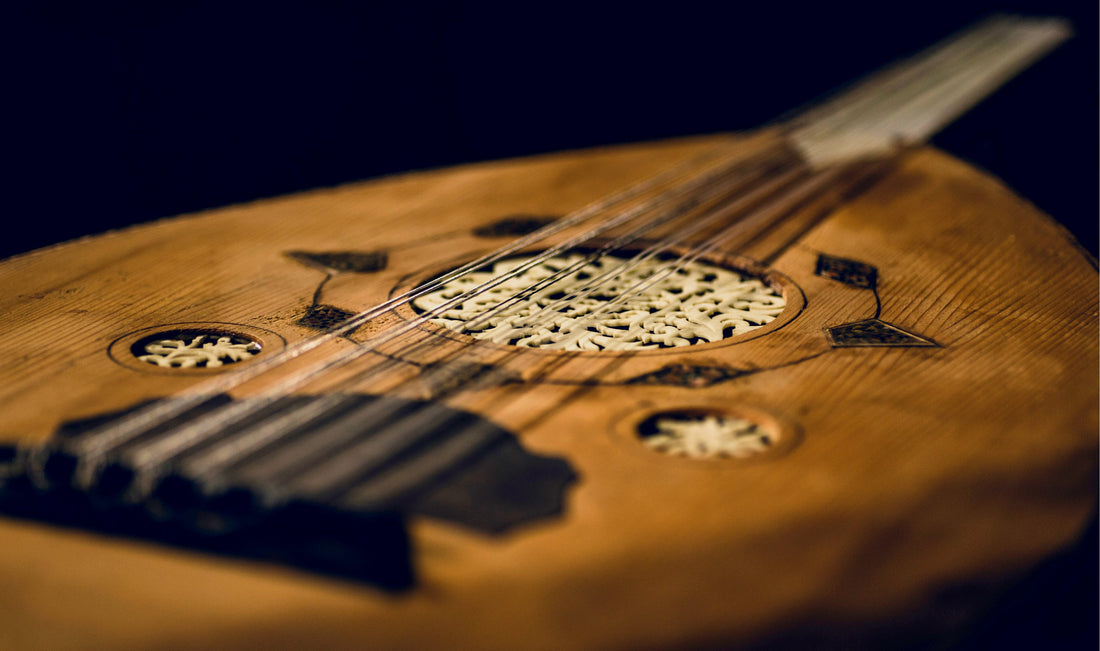
What Does "Arabic Music" Refer To?
Share
The term "Arabic Music" is used often, but what does it actually mean? In fact, the Arab world, in general, refers to a vast collection of countries that aren't necessarily in Arabia, so what do we really mean when we talk about Arabic Music? Read on to find out!
What is an Arab?
According to Wikipedia:
Arabs primarily inhabit the 22 Arab states within the Arab League:
- Algeria
- Bahrain
- The Comoros
- Djibouti
- Egypt
- Iraq
- Jordan
- Kuwait
- Lebanon
- Libya
- Mauritania
- Morocco
- Oman
- Palestine
- Qatar
- Saudi Arabia
- Somalia
- Sudan
- Syria
- Tunisia
- United Arab Emirates
- Yemen
It's interesting to note that these countries span across 13 million square kilometres, a massive area! When it comes to defining an Arab, it includes a lot more than simple geography.
For example, if someone was to ask what an American is, you would define American by someone who is from America. The determining factor is strongly, and pretty much exclusively, geographical.
In the context of Arabs though, oftentimes they are defined by a number of factors:
- Ethnic
- Linguistic
- Cultural
- Historical
- Identical
- Nationalist
- Geographical
- Political
In summary, Arab countries encompass a number of different regions and to be an Arab you can fit into a very broad range of categories.
With this in mind, it is important to understand what we mean by "Arabic Music". Are we referring to the music of all 22 countries in the Arab League as shown above? Or are we talking about something different?
Arabic Music
We can think of Arabic Music as strongly defined by the instruments it is played with, and the language it is performed in. In our personal opinion, Arabic Music is anything played on an Arabic instrument, or performed in Arabic, or written in a clear distinct Arabic manner, for example by embodying a certain Arabic Maqam (scale).
With this in mind, we can define Arabic Music as a very broad genre that potentially encompasses a number of regions and disciplines, it thus makes sense to split Arabic Music into some more specific denominations:
- Al Khalij
- Countries beneath Iraq in the Persian Gulf, such as Saudi Arabia and Yemen
- Ash-Sharq
- Countries in the Eastern part of the Arabic World, such as Syria, Iraq and Egypt
- Al Maghreb
- Countries in the Western part of the Arabic World, such as Morocco and Algeria
- Iraq
- Iraq's music is similar enough to Arabic Music to be considered Arabic, but also so rich and traditional that it is clearly distinct from other regions
Neighbouring Influences
Taking a step back to look at how the Arab world developed, it was primarily through the conquests of Islam, which took Islam to places beyond the areas which are considered "Arab" today. This meant that musical disciplines that existed in parts of the Islamic world were spread throughout other parts of the Islamic world with ease.
As such, we can see that there is crossover and influence from neighbouring musical regions, primarily:
- Byzantium
- Turkey
- Persia
- The Indian Subcontinent
A clear example of this is Turkey. Turkish Music and Arabic Music are similar in so many ways (although they keep their distinctions). Take the main instruments used in their music, the Oud and the Qanun. Both Turkish and Arabic disciplines use both the Oud and the Qanun, however, both the Turkish Oud and Qanun are slightly shorter than their Arabic counterparts.
So while the disciplines are very similar, they are also different in many ways. In the case of Arabic and Turkish music, one important differentiation is language - Turks don't speak Arabic.
Arabic Music: The Golden Age
We think it's safe to say that this article wouldn't be complete without at least one mention of the Golden Age of Arabic Music. We are referring of course to the period which started from around the end of World War 1 and lasted for almost 50 years.
A detailed explanation of the Golden Age of Arabic Music would require a whole essay in itself.
A simplified version would be that the Arabic world extracted itself from any Ottoman Turkish influence at the end of WW1 after the Ottoman empire fell.
This, coupled with the great Western influence over Egypt and surrounding regions in this period resulted in massive cultural reforms in Egypt, especially in music.
The result was the Golden Age of Arabic Music, led by Cairo, where Arabic Music came into its own as a rich and beautiful musical genre. Because of this period, when most people refer to Arabic Music, they are thinking of the Golden Age, and by extension associate Arabic Music very closely to Egyptian Music.
Conclusion
That pretty much sums up what Arabic Music is. To recap:
- Arabic Music is any music written in Arabic, or uses Arabic instruments, or is clearly Arab in its composition.
- Something is considered Arabic if it is from any of the 22 regions within the Arab League.
- There was a very strong influence on Arabic music from neighbouring regions such as Turkey and Persia. This resulted in overlap in musical traditions.
- The Golden Age of Arabic Music is what most people know Arabic Music by, and since Cairo was the heart of the Golden Age, most people think Arabic Music is just Egyptian music. Though Egypt is still commonly agreed to be home to the best of Arabic music, and is also the origin of Our Team.
You can also read our post about where the famous instrument, the Darbuka, comes from in our blog post on its origins.
Join our family
We pride ourselves in offering everything you could possibly need in diving into the world of Arabic music, be it instruments or knowledge. Look no further than our store for a diverse assortment of Arab instruments! Or if it's expertise you seek... check out our Darbuka Mastery Program!
We would be honoured for you to share our passion. Read into Our History, or perhaps discover how our products are made through our Innovation page. Once you've sated your appetite, invite others to join the family too through our social media buttons below! Also, subscribe to our mailing list to keep up with all of the latest goings-on here at Gawharet El Fan!

